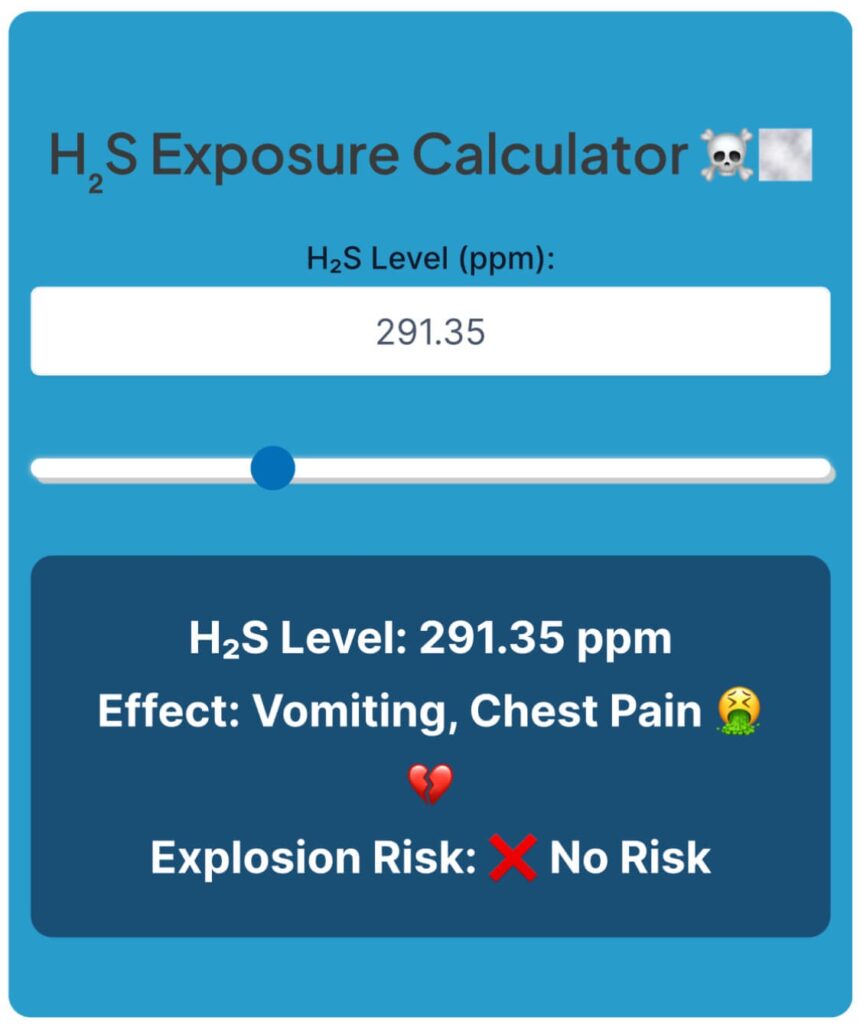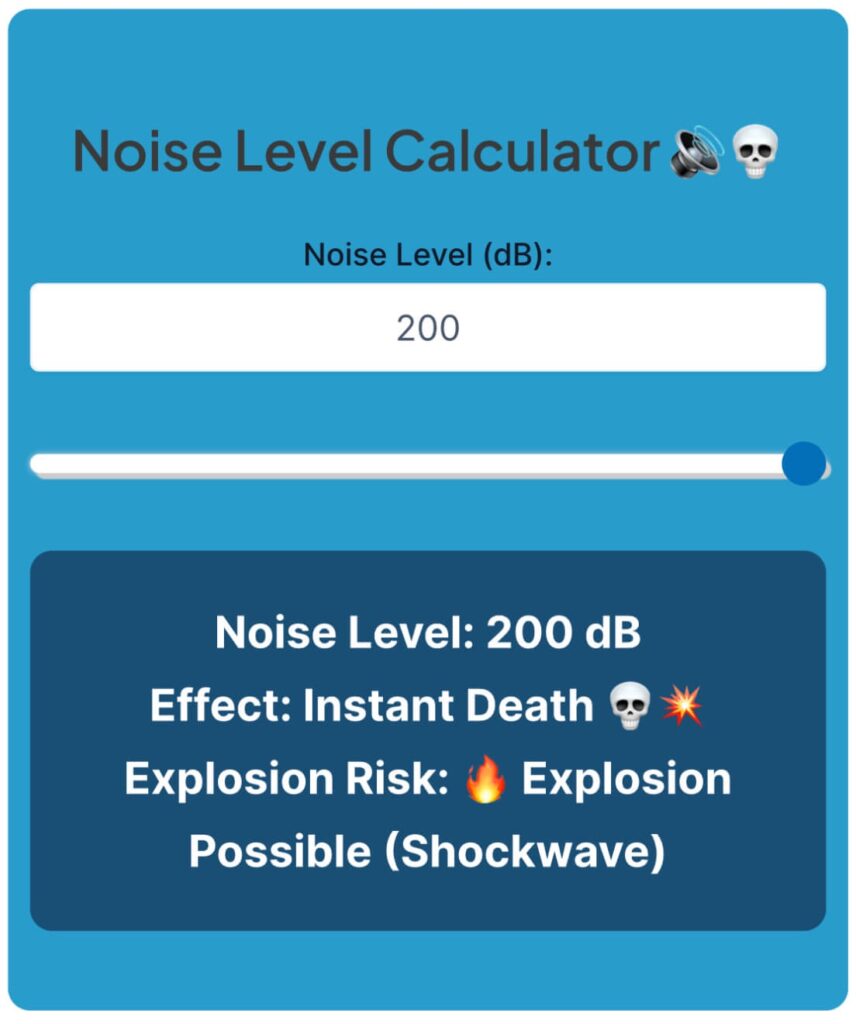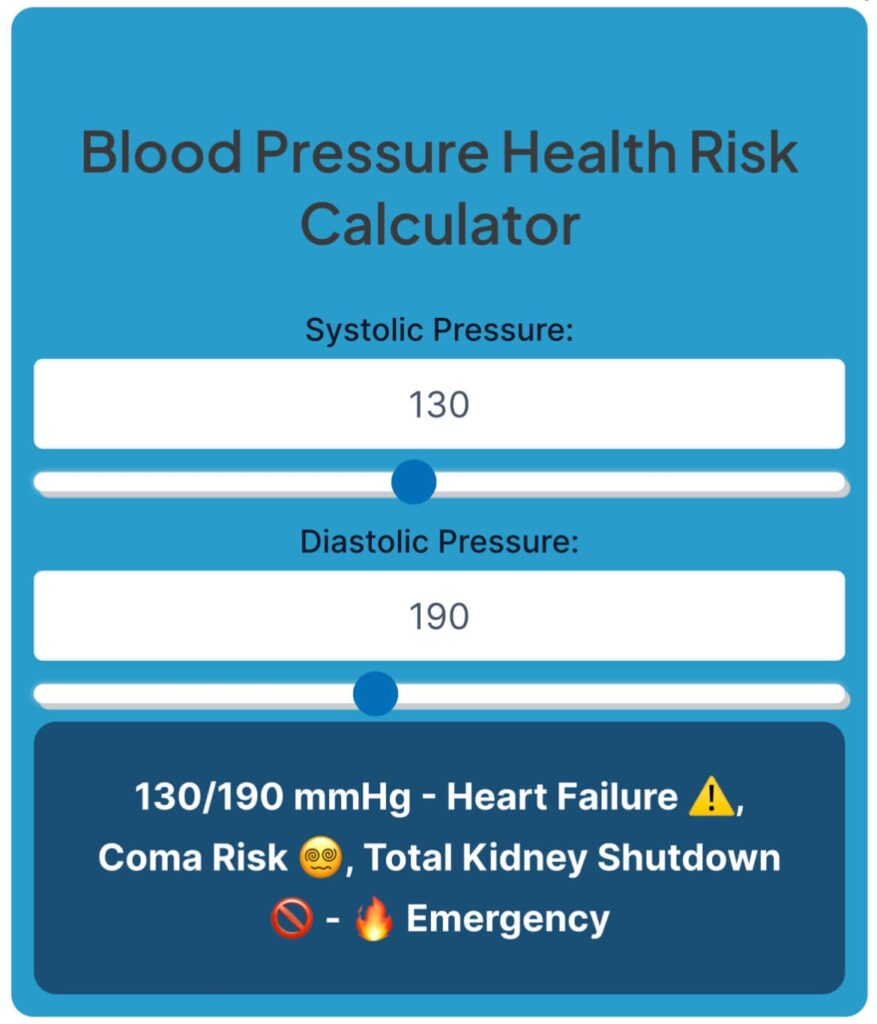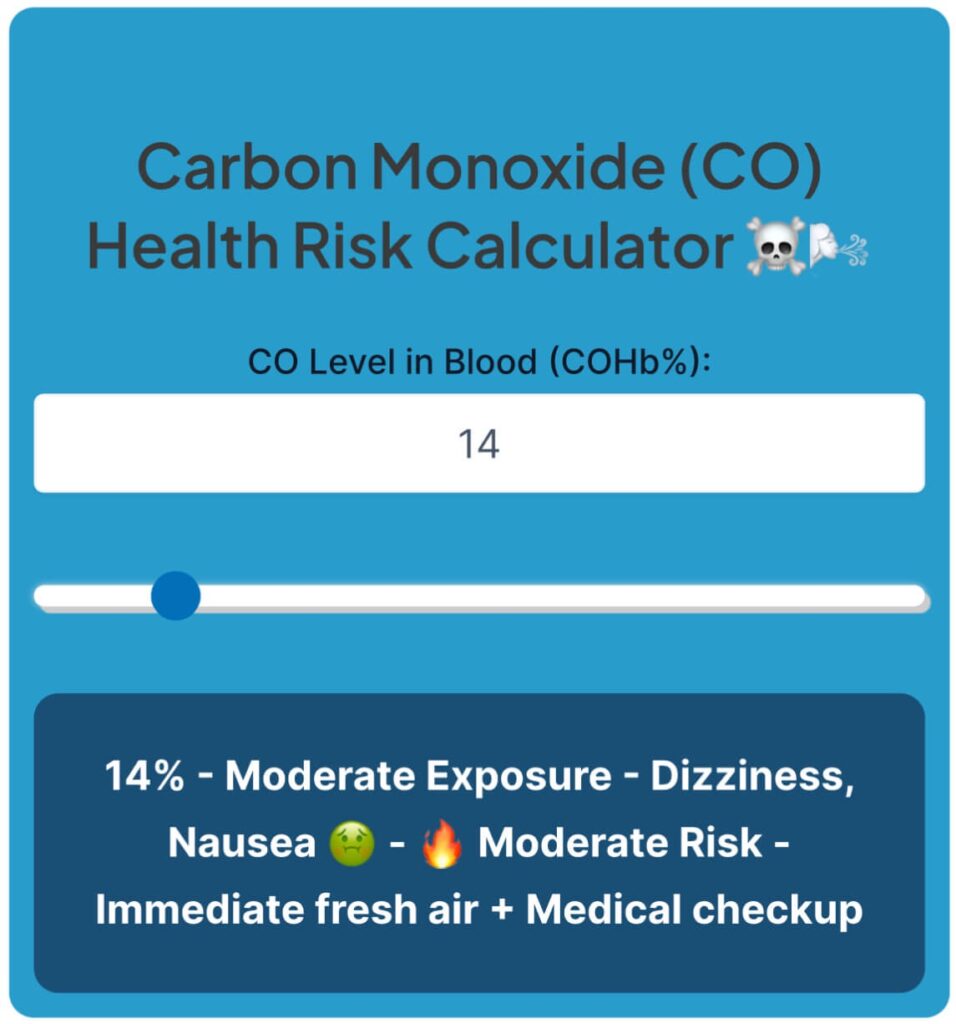CO Level Impact Chart
This Carbon Monoxide Exposure Level Chart explains how carbon monoxide (CO) messes up your body silently. CO is that invisible gas with no smell or taste but deadlier than you think ☠️. Even small amounts of CO can damage your brain 🧠, heart ❤️, and lungs 🫁 without warning. This chart breaks down how different CO levels affect your body, what symptoms you’ll feel, and what action you need to take 🚨.
| CO Level in Blood (COHb%) | CO % in Air 🌬️ | Health Condition | Symptoms | Risk Level 🔥 | Immediate Action 🚨 |
| 0% – 1% | 0 ppm | Normal | No symptoms | ✅ Safe | No action needed |
| 2% – 10% | 10 – 50 ppm | Mild Exposure | Mild headache, Fatigue 😓 | ⚠️ Low Risk | Move to fresh air |
| 11% – 20% | 50 – 100 ppm | Moderate Exposure | Dizziness, Nausea 🤢 | 🔥 Moderate Risk | Immediate fresh air + Medical checkup |
| 21% – 30% | 100 – 200 ppm | Severe Exposure | Confusion, Chest pain 💥 | 🔴 High Risk | Oxygen therapy + Hospitalization |
| 31% – 40% | 200 – 400 ppm | Critical Exposure | Unconsciousness 😨 | 🚨 Very High Risk | Emergency medical help |
| 41% – 50% | 400 – 800 ppm | Life-Threatening | Seizures, Coma ⚠️ | ❌ Extreme Risk | ICU + Oxygen therapy |
| 51% – 60% | 800 – 1000 ppm | Organ Failure Stage | Respiratory failure 🔥 | ❌ Extreme Risk | ICU + Ventilator + Life Support |
| 61% – 70% | 1000 – 1500 ppm | Near Death | Brain Damage 🧠❌ | ☠️ Fatal Risk | Life Support + Critical Care |
| Above 70% | Above 1500 ppm | Death Stage | No Brain Activity ⚰️ | ☠️ Death Risk | No Recovery Possible |
1. Normal (0% – 1%) ✅
You’re safe, bro! This is your everyday clean air with 0 ppm CO around you. No symptoms, no risks — just breathe and enjoy life 🌬️.
2. Mild Exposure (2% – 10%) ⚠️
You’re feeling a little off — mild headache and fatigue 😓. This happens when you’re chilling in front of the stove for too long or sitting near vehicle smoke. Nothing too serious, but move to fresh air immediately.
3. Moderate Exposure (11% – 20%) 🔥
Now your head is spinning 😵, you’re feeling dizzy, and nausea is kicking in 🤢. This is your body’s warning sign! If you don’t get fresh air + medical checkup right away, you’re one step closer to the danger zone.
4. Severe Exposure (21% – 30%) 🔴
Confusion starts, chest pain 💥 hits hard, and you’re struggling to breathe. This is serious, bro! Your organs are crying for oxygen. Only oxygen therapy + hospitalization can save you now.
5. Critical Exposure (31% – 40%) 🚨
You’re slipping into unconsciousness 😨, and your body is shutting down. This is a very high-risk level. Without emergency medical help + oxygen therapy, you’re knocking on death’s door.
6. Life-Threatening (41% – 50%) ❌
Seizures, coma, and brain damage are happening inside your body 🧠❌. This is your final call for survival! Only ICU + oxygen therapy can bring you back from this level.
7. Organ Failure Stage (51% – 60%) 🔥❌
Bro, your lungs are failing 🫁, and your heart can’t pump blood anymore. You’re on ventilators + life support now — only machines are keeping you alive.
8. Near Death (61% – 70%) ☠️
Brain damage is permanent, and your body is barely hanging on. Without critical care + life support, there’s no coming back from this stage.
9. Death Stage (Above 70%) ⚰️
No brain activity, no pulse — you’re officially dead, bro 💀. Once CO levels reach this point, there’s zero chance of recovery.
Final Advice 🔥
Carbon Monoxide is the silent killer. If you feel headache, dizziness, or nausea in closed rooms or near gas appliances — get out immediately! Always install CO detectors in your house and never ignore early symptoms.
Source 🔍
World Health Organization (WHO)
Centers for Disease Control and Prevention (CDC)
Disclaimer ⚠️
This chart is for educational purposes only, bro! Always consult a doctor or medical professional for proper diagnosis and treatment. Never depend on this chart alone in medical emergencies. Carbon monoxide poisoning can be fatal — act fast, not last!












